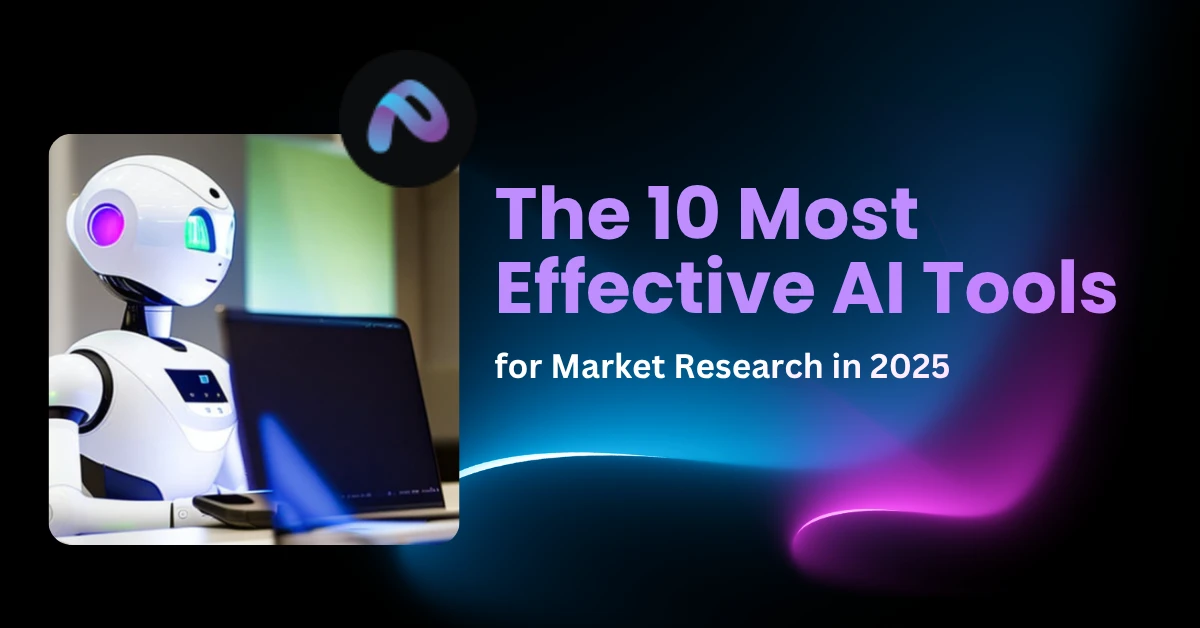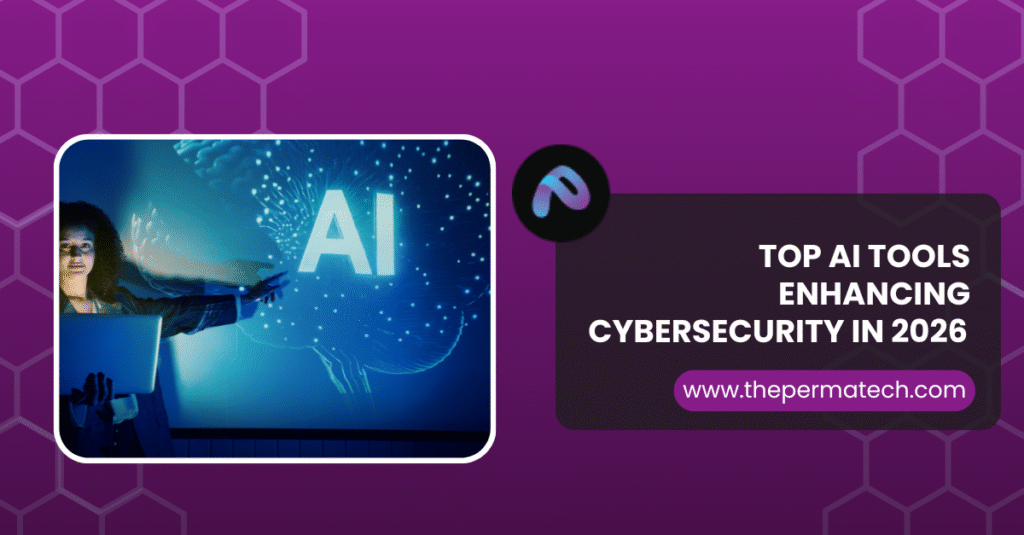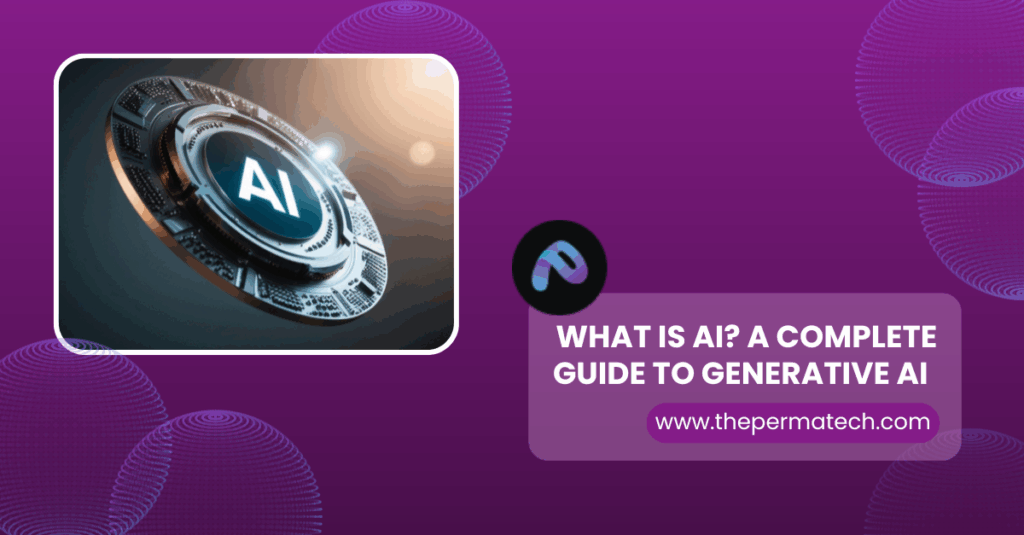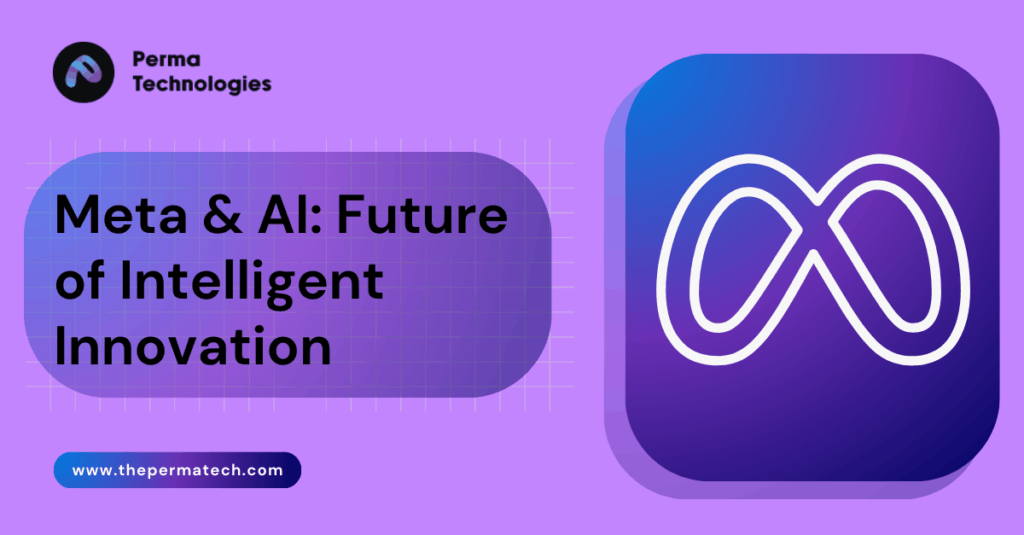In today’s hyper competitive landscape, market research has evolved far beyond traditional surveys and focus groups. With the rapid rise of artificial intelligence (AI), businesses can now leverage powerful, automated tools that gather insights, predict trends and analyze consumer behavior at scale. Whether you’re a startup founder, a marketing strategist, or a data analyst, understanding the most effective AI tools for market research is essential for making data driven decisions.
In this article, we’ll explore how AI is reshaping market research, dive into the best tools available in 2025 and explain how each one can help you gain a competitive edge.
Why AI is Revolutionizing Market Research?
Market research is fundamentally about understanding customers, competitors, and market dynamics. Traditional methods such as surveys, interviews, and manual data collection are time consuming, expensive, and limited in scope. AI changes the game by:
- Automating data collection from millions of sources (social media, review sites, news outlets).
- Using machine learning models to predict consumer behavior and market trends.
- Processing unstructured data like text, images, and videos with natural language processing (NLP) and computer vision.
- Reducing bias and increasing accuracy through data driven analysis.
- Delivering real time insights that help companies make agile decisions.
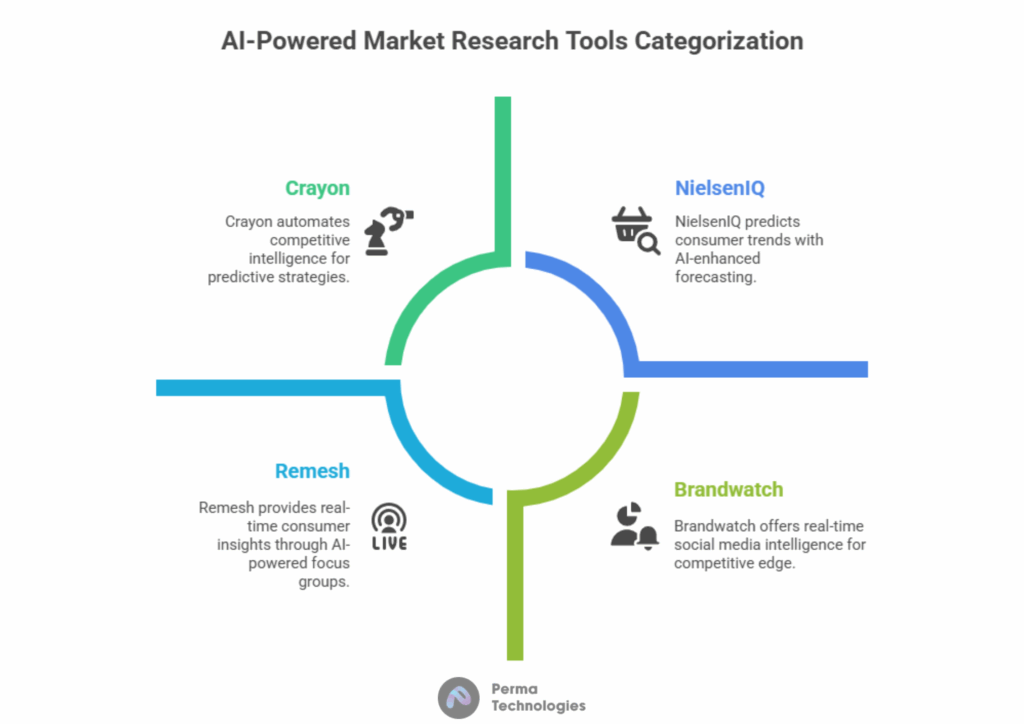
Let’s now look at the top AI powered tools transforming market research.
1. Crayon: Competitive Intelligence Automation
Best for: Tracking competitors’ moves in real time
Crayon is a market intelligence platform that uses AI to track every move your competitors make pricing changes, product launches, website updates, hiring activity, marketing campaigns, and more. It compiles this information into real-time dashboards and sends alerts when competitors make strategic changes.
Key Features:
- Tracks over 100 data types across websites, social media, and digital ads
- AI-powered summaries to reduce noise and surface relevant changes
- Visual timelines and shareable battle cards
Why It’s Effective:
Crayon uses Artificial Intelligence to cut through the noise, so your team isn’t manually monitoring dozens of competitor sites. It’s especially valuable for sales and marketing teams crafting messaging strategies.
2. ChatGPT + Browsing (Pro): Generative Research Assistant
Best for: Summarizing reports, generating personas, trend analysis
OpenAI’s ChatGPT with web browsing capabilities (available to ChatGPT Plus users) acts as a virtual research assistant. It can summarize dense industry reports, generate customer personas from survey data, analyze sentiment from online reviews, or even create interview questions for focus groups.
Key Features:
- Browses the web to find the latest stats and trends
- Summarizes market research PDFs and articles
- Writes customer segmentation summaries and SWOT analyses
Why It’s Effective:
It dramatically speeds up the research phase, reduces the need for manual reading, and can simulate brainstorming sessions with a strategist 24/7.
3. Remesh: AI Powered Focus Groups
Best for: Live qualitative research with real time insights
Remesh blends Artificial Intelligence with traditional focus groups by allowing companies to engage hundreds of participants in live, moderated sessions. AI interprets open-ended responses in real time, clusters sentiments, and identifies the most common themes.
Key Features:
- Real time natural language processing (NLP)
- Live respondent interaction
- Visual dashboards showing emergent themes
Why It’s Effective:
You can engage a larger, more diverse group than a traditional focus group, and the Artificial Intelligence handles the summarization, allowing for faster decision making.
4. MonkeyLearn: Text Analysis and Sentiment Detection
Best for: Analyzing customer feedback, reviews, survey responses
MonkeyLearn offers an intuitive platform for custom AI text classification and extraction. Whether you’re analyzing product reviews, survey answers, or support tickets, it helps you understand customer sentiments, emotions, and recurring topics.
Key Features:
- Pre trained models for sentiment, emotion, keyword extraction
- Drag and drop interface for building custom classifiers
- Visualizations and data export options
Why It’s Effective:
You don’t need a data science team to analyze large volumes of qualitative feedback. MonkeyLearn simplifies it for marketers and researchers alike.
5. SparkToro: Audience Intelligence
Best for: Identifying where your audience hangs out online
SparkToro uses AI to scan billions of social and web profiles to show where your audience spends time, what they follow, and what they talk about. You input a keyword, social handle, or website, and it delivers in depth audience insights.
Key Features:
- Audience behavior mapping
- Influencer and podcast identification
- Real audience interests, hashtags, and websites
Why It’s Effective:
Instead of guessing where your ideal customers are, SparkToro shows you. It’s particularly powerful for content strategy, influencer outreach, and brand partnerships.
6. Quantilope: End to End Automated Market Research
Best for: Conducting complex surveys with speed and accuracy
Quantilope automates the full survey research workflow from survey creation and deployment to analysis and visualization using AI and advanced methodologies like conjoint analysis and max diff.
Key Features:
- AI survey builder with predictive logic
- Automated statistical modeling (segmentation, TURF, drivers)
- Interactive dashboards and reports
Why It’s Effective:
Quantilope drastically reduces time to insight while offering the depth of traditional research firms. It’s ideal for brands that frequently conduct consumer preference studies.
7. Crimson Hexagon (now Brandwatch): Social Media Intelligence
Best for: Social listening and trend prediction
Brandwatch uses deep Artificial Intelligence analysis to interpret massive volumes of social media data across platforms. It detects emerging trends, maps brand perception, and monitors campaign performance using visualizations and predictive modeling.
Key Features:
- Historical and real time social media data
- Image recognition and emoji sentiment
- Influencer impact tracking
Why It’s Effective:
Its ability to track millions of conversations in real time makes it a must-have for PR, brand, and marketing teams trying to stay ahead of public opinion.
8. Think with Google + Gemini AI
Best for: Trend forecasting and consumer behavior exploration
Google’s platform “Think with Google” offers research reports, trend tools, and insights backed by search data and YouTube analytics. Now enhanced with Gemini Artificial Intelligence (Google’s generative AI engine), it allows researchers to query trends and get AI generated reports based on real time search patterns.
Key Features:
- Access to anonymized, aggregated Google Search and YouTube data
- AI-assisted insights generation
- Trend forecasting by industry and geography
Why It’s Effective:
It leverages the world’s largest dataset of consumer intent Google searches. Gemini makes that data more accessible and interpretable, even for non analysts.
9. AnswerThePublic + AI Assistants
Best for: Keyword research and content ideation
Answer the Public tool shows what questions people are asking on Google and Bing around a topic. With Artificial Intelligence assistants now integrated, AnswerThePublic helps turn those queries into full marketing plans, content outlines, or research hypotheses.
Key Features:
- Query visualization maps
- Integrated Artificial Intelligence assistant to summarize and recommend next steps
- Keyword trends over time
Why It’s Effective:
Understanding what people are searching for helps you tailor content, marketing strategies, and product ideas to real consumer needs.
10. NielsenIQ: Predictive Consumer Intelligence
Best for: Predicting consumer trends in CPG and retail
NielsenIQ uses Artificial Intelligence to analyze point of sale data, loyalty cards, retail trends, and household panels. It delivers predictive models that help brands forecast demand, optimize pricing, and understand shifting consumer preferences.
Key Features:
- Product innovation simulators
- Omni channel consumer behavior tracking
- AI enhanced demand forecasting
Why It’s Effective:
Trusted by major FMCG brands, NielsenIQ combines decades of data with modern AI to deliver commercial insights with precision.
How to Choose the Right AI Tool for Market Research
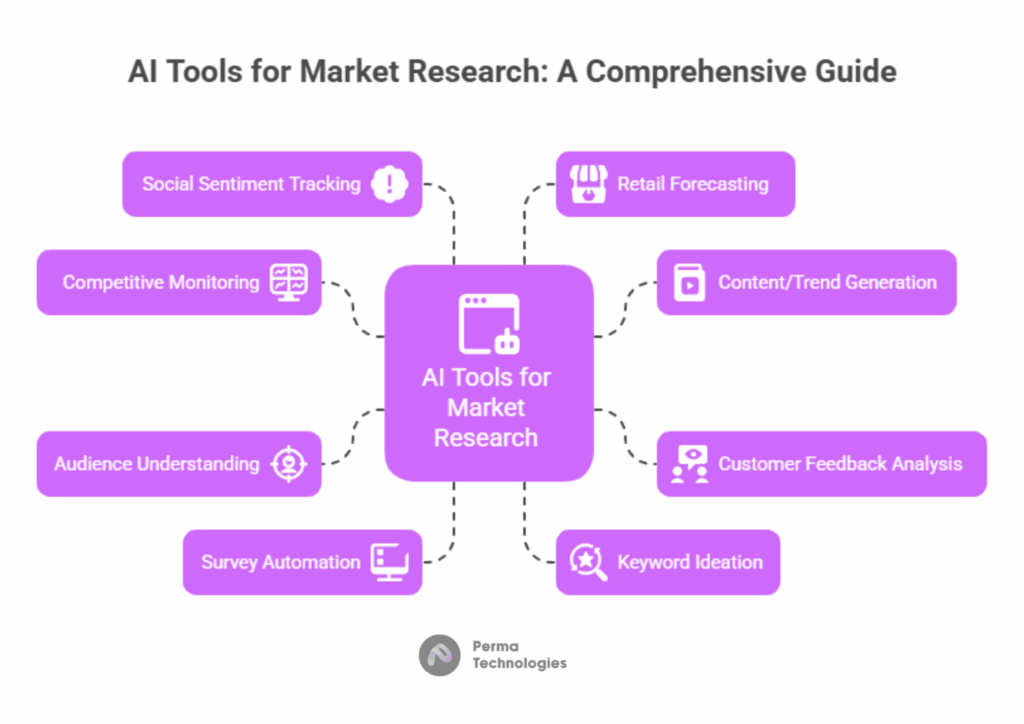
The ideal tool depends on your objectives. Here’s a quick guide:
| Goal | Tool Recommendation |
| Competitive monitoring | Crayon |
| Fast content/trend generation | ChatGPT + Gemini AI |
| In-depth customer feedback | MonkeyLearn or Remesh |
| Audience understanding | SparkToro or Brandwatch |
| Survey and testing automation | Quantilope |
| Keyword and topic ideation | AnswerThePublic |
| Social sentiment and PR tracking | Brandwatch (Crimson Hexagon) |
| Retail/CPG forecasting | NielsenIQ |
Final Thoughts
AI is not just augmenting market research,it’s redefining it. By leveraging the right tools, companies can go from reactive to proactive, uncover hidden patterns, reduce decision making lag, and align better with customer needs.
Whether you’re validating a product idea, exploring new market segments, or building your brand strategy, these AI tools provide the clarity and confidence modern businesses require.

